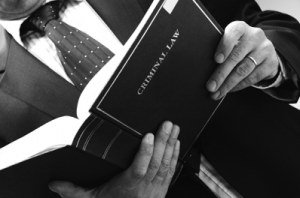The Boykin Rights: Knowing, Intelligent And Voluntary Plea Bargaining
People v Conceicao
2015 NY Slip Op 08615
New York Court Of Appeals
Decide on November 24 2015
Issue: Whether the defendant entered a knowing, intelligent and voluntary guilty plea when the trial court failed to mention his Boykin constitutional rights.
Holding: The Court of Appeals stated that the primary issue is whether the defendant entered a knowing, intelligent and voluntary guilty plea when the trial court failed to mention the constitutional rights defendant was waiving, the right to trial by jury, the right to confront ones accusers and the privilege against self discrimination, Boykin v Alabama, 395 US 238, 243 [1969]. The Court of Appeals held that the trial courts have a vital responsibility to ensure that a defendant who pleads guilty makes a knowing, voluntary and intelligent choice among alternative courses of action, People v Harris, 61 NY2d 9, 19 [1983]. The Court has repeatedly rejected a formalistic approach to guilty pleas and have steered clear of a uniform mandatory catechism of pleading defendants, People v Tyrell, 22 NY3d at 365).
Instead, the Court of Appeals has opted for a flexible rule that considers all of the relevant circumstances surround a plea among other factors, they evaluate: the seriousness of the crime, the competency, experience and actual participation by counsel, the rationality of the plea bargain, the pace of the proceedings in the particular criminal court and whether the defendant consulted with his attorney about the constitutional consequences of the plea. So long as the record as a whole affirmatively discloses that a defendant who pleased guilty entered his plea understandingly and voluntarily, the plea will be upheld.
Here, because the totality of the circumstances reveals that the defendant did not have an opportunity to discuss the plea with his attorney or consider its consequences, his plea was invalid.
Facts: Defendant was arrested and charged with criminal possession of a controlled substance in the seventh degree, a class A misdemeanor, Penal Law 220.02. The People recommended a plea to the charge in exchange for two days of community service. Defendant took the plea, but appealed arguing that his plea was not knowing and voluntary because he was never informed of his Boykin rights. The Appellate Division affirmed the judgment of the conviction, holding that defendants challenge to the plea allocution was unpreserved for appellate review and declined it in the interest of justice. The Appellate Division found that defendants plea was voluntary, knowing and intelligent.
A judge of the Court of Appeals granted leave to appeal and the Court reversed, stating that there was no discussion of any circumstances surrounding the plea or the rights defendant waived; nor does it indicate whether defendant spoke with his attorney before entering the plea. Defendants only interaction with the court was stating that he wished to plead guilty. Because of the totality of the circumstances revealing that defendant did not have the opportunity to discuss the plea with his attorney or consider its consequence, his plea was invalid.
Legal Analysis: The Court of Appeals stated that the primary issue is whether the defendant entered a knowing, intelligent and voluntary guilty plea when the trial court failed to mention the constitutional rights defendant was waiving, the right to trial by jury, the right to confront ones accusers and the privilege against self discrimination, Boykin v Alabama, 395 US 238, 243 [1969].
The Court held that the failure to recite the Boykin rights does not automatically invalidate an otherwise voluntary and intelligent plea. Where the record as a whole affirmatively shows that the defendant intentionally relinquished those rights, the plea will be upheld. The record contains no discussion of any of the circumstances surrounding the plea or the rights defendant waived; nor does it indicate whether defendant spoke with his attorney before entering the plea. Defendants only interaction with the court was stating that he wished to plead guilty. The Court stated that generally, in order to preserve a claim that a guilty plea is invalid a defendant must move to withdraw the plea or else file a motion to vacate the judgment of conviction pursuant to CPL 440.10, People v Peque, 22 NY3d 168, 182 [2013]. Where the particular circumstances of a case reveal that a defendant had no actual or practical ability to object to an alleged error in the taking of a plea that was clear from the face of the record, People v Louree, 8 NY3d 541 546 [2007].
 If a defendant has an opportunity to seek relief from the sentencing court, he must preserve his challenge to the plea, People v. Crowder, 24 NY3d 1134, 1136[2015]. Because the totality of the circumstances reveals that the defendant did not have an opportunity to discuss the plea with his attorney or consider its consequences, his plea was invalid. The Court of Appeals reversed the order of the Appellate Division and remitted the case.
If a defendant has an opportunity to seek relief from the sentencing court, he must preserve his challenge to the plea, People v. Crowder, 24 NY3d 1134, 1136[2015]. Because the totality of the circumstances reveals that the defendant did not have an opportunity to discuss the plea with his attorney or consider its consequences, his plea was invalid. The Court of Appeals reversed the order of the Appellate Division and remitted the case.
